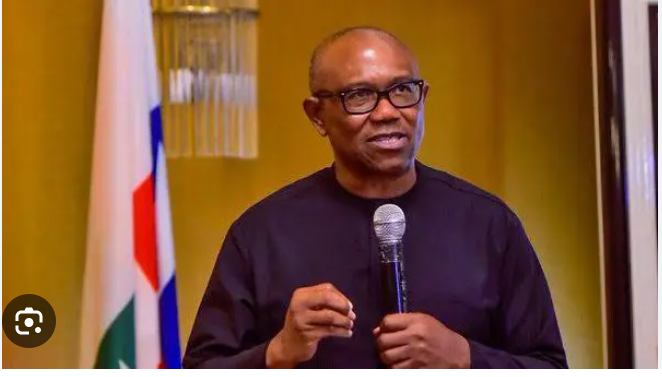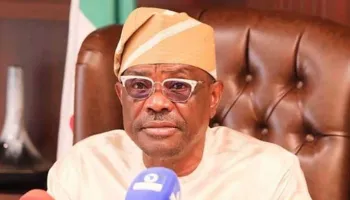
News
Peter Obi Demands Nnamdi Kanu’s Release

(iexclusivenews) – In a bold move that has sent ripples through Nigeria’s political landscape, Peter Obi, the Labour Party’s presidential candidate in the 2023 general elections, has called for the immediate release of Nnamdi Kanu, the detained leader of the Indigenous People of Biafra (IPOB).
This demand, made during a press conference in Onitsha, Anambra State, highlights the ongoing tension between government actions and the rule of law in Nigeria.

The Case for Kanu’s Release
Peter Obi’s stance on Nnamdi Kanu’s detention is clear and unequivocal.
He argues that there is no justifiable reason for Kanu’s continued incarceration, especially given that the courts have granted him bail.
Obi emphasized:

“I don’t see any reason for his continuous detention, especially as the courts have granted him bail. The government must obey the court. The rule of law is an intricate asset that we must cherish and live with.”
This statement underscores a fundamental principle of democracy: the separation of powers and the importance of the judiciary’s independence.
By calling for the government to adhere to court rulings, Obi is advocating for a stronger, more accountable democratic system in Nigeria.
READ MORE: Peter Obi Slams FG’s Plan to Buy New Presidential Jets
Broader Implications for Nigerian Democracy
Obi’s call extends beyond Nnamdi Kanu to include all individuals detained under similar circumstances.
He urges the federal government to release and engage in dialogue with these detainees, emphasizing that such actions are crucial for maintaining democratic principles.
This approach suggests a shift towards more inclusive governance and conflict resolution strategies.
Addressing Nigeria’s Security Crisis
The former Anambra State governor didn’t stop at discussing detainees’ rights.
He delved into the pressing issue of insecurity plaguing Nigeria, warning that the country risks becoming a failed state if urgent measures are not taken. Obi stated:
“The primary work of government is the security of lives and property. It is worrisome what is happening in Nigeria with the news of killings, abductions, and other vices that have made Nigeria one of the most insecure places on earth.”
This stark assessment highlights the need for a comprehensive and collaborative approach to tackling insecurity.
Obi called for unity among leaders, particularly in the South-East, to address these challenges effectively.
Economic Concerns and Regional Cooperation
Obi also touched on economic issues, advocating for greater cooperation among South-East governors to drive economic growth and development in the region.
This call for regional collaboration reflects a pragmatic approach to addressing Nigeria’s economic challenges.
On Protests and Freedom of Expression
Addressing recent protests in Kenya and drawing parallels to Nigeria,
Obi expressed support for peaceful demonstrations while condemning the destruction of public property.
He emphasized the importance of allowing free speech and peaceful protests in a democratic society, stating:
“We are in a democratic country, and people have the right under the constitution to express themselves freely. They also have the right to peacefully protest, and we must listen to them.”
Focus on the People
When questioned about potential political alliances, Obi redirected the conversation to what he considers more pressing issues:
“I am more particular on how the poor Nigerians can feed. I would rather talk about things that are affecting Nigerians today. We politicians are preoccupied with elections, and that is not what I am after.”
This statement reflects Obi’s prioritization of addressing immediate socio-economic challenges over political maneuvering.
Conclusion: Peter Obi’s recent statements paint a picture of a leader focused on strengthening democratic institutions, addressing insecurity, and prioritizing the welfare of Nigerian citizens. His call for Nnamdi Kanu’s release, coupled with broader concerns about governance and economic development, presents a comprehensive critique of current Nigerian politics and offers a vision for a more just and prosperous nation.
As Nigeria continues to grapple with these complex issues, the dialogue initiated by figures like Peter Obi will undoubtedly play a crucial role in shaping the country’s political and social landscape. The coming months will reveal whether these calls for change will translate into concrete actions and reforms.


























